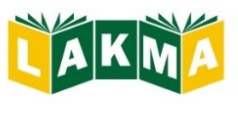
BIODATA
FRANZ MITTENDORFER is teacher of English, teacher trainer and language consultant to the Department of Vocational Education and Training at the Austrian Federal Ministry of Education. He has taught in Austria and abroad (NILE training consultant since 2007), has co-authored the Austrian Language Portfolio for Young Adults, a textbook series (AMAZING ENGLISH) and a multi-media program for teachers and learners of languages for professional purposes (PROMOTICS). On an international level, he has contributed to the proceedings and final report of the Thematic Working Group LANGUAGES FOR JOBS, which was set up by the European Commission (2010-2012). He fervently supports a genuinely multilingual and objective-oriented approach to language education, the concept of CLIL (Content and Language Integrated Learning) and Liverpool FC.
PLENARY The tripple E – Education for Empowerment and Employability – is that not what CLIL is all about?
Language education cannot be separated from content education. Learners need content to learn as well as language through which to learn. Hence, the days when “language“ and “content“ were seen as separate entities and delivered in separate lessons are gone. Modern EDUCATION is multifaceted, flexible, authentic and cross-curricular. It targets learner EMPOWERMENT, the development of critical thinking and creativity, the ability to take decisions and solve problems, to manage processes related to the self and others. It is like a river feeding three lakes: personal fulfilment and development, social inclusion and stability, and, not least and by no means without good reason, it needs to feed the troubled waters of employment and EMPLOYABILITY. All this is at the very heart of what we call CLIL.
WORKSHOP Changing perspectives – glimpses at CLIL from beyond the fence
Much of what we discuss in matters of CLIL is done from a teacher’s perspective. Why not “change caps” and look at things from the other side of the fence? I’d like to teach you a sample CLIL lesson and invite you to take the roles of learners at Upper Secondary level. When de-briefing the lesson, we might address issues such as lesson objectives, design and delivery, learner involvement, perhaps also that hot potato we call “learner assessment”. Returning from “beyond the fence”, we might even ask ourselves whether or not there has been any fence at all …
